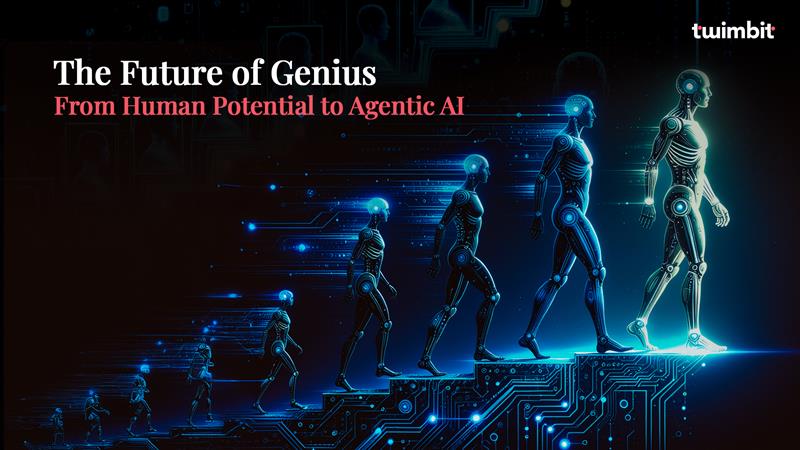September 10, 2025

Are we on the brink of a new kind of genius?
With the rise of Agentic AI, large language models, and the possibility of singularity, the very definition of genius is evolving. For centuries, we have celebrated the rare individuals whose brilliance transformed society. But today, technology is beginning to augment, and in some cases outperform, human intellect.
Will the next Einstein be a person, or an algorithm? And what responsibilities come with such power?
There is a popular, if playful, idea that the world’s greatest geniuses might be “not of this Earth.” Srinivasa Ramanujan once said his mathematical insights came to him in dreams from his family goddess. Nikola Tesla’s contemporaries joked he was touched by lightning. Mozart often claimed symphonies simply appeared in his head, fully formed.
Are today’s visionaries like Elon Musk, Mark Zuckerberg, Sam Altman, Jack Ma, or Aravind Srinivas (CEO of Perplexity) from outer space?
While these stories and questions spark wonder, they do not require extraterrestrial explanations. Genius is not alien. It is profoundly human. It emerges at the intersection of education, intuition, spirituality, culture, and passion. Extraordinary insights often feel mystical only because they are rare.
Throughout history, a small fraction of humanity, perhaps 0.01 percent, has reshaped how we live and think. Consider a few examples:
These examples remind us that genius comes in many forms: mathematical, scientific, artistic, and humanitarian.
Yet genius is not always benevolent. The same human ingenuity that built vaccines and spacecraft also created nuclear weapons and chemical warfare. Innovation carries responsibility, and the line between progress and peril often depends on how society chooses to apply brilliance.
When History Defies Explanation
It remains one of the great enigmas of human history how ancient civilizations achieved extraordinary feats with seemingly limited tools. They charted the stars with astonishing precision, aligning monuments to celestial events and predicting eclipses. They built architectural marvels like the pyramids of Giza and Angkor Wat without modern machinery, using methods we still struggle to fully comprehend. Long before sterile operating theatres, they performed complex surgeries such as trepanation and cataract removal with surprising success.
Civilizations also knew Earth was spherical and rotating on its axis long before Copernicus. The Antikythera mechanism, an ancient Greek analog computer, and the advanced urban planning of the Indus Valley further remind us that our ancestors possessed scientific and engineering insight that challenges modern assumptions.
These achievements show that intelligence is not defined by technology alone. Human curiosity, observation, and intuition have always been powerful tools, and perhaps we still have much to learn from those who came before us.
As we stand at the frontier of Agentic AI, we may be witnessing the dawn of a new kind of genius.
The future of genius may not belong to a few rare individuals but to collaborative systems where human imagination and machine intelligence merge.
The myth of alien genius may be captivating, but the truth is far more inspiring. Genius belongs to humanity. It is a legacy shaped by our collective curiosity, struggles, and spirit.
As AI accelerates innovation, the challenge ahead is not to marvel at mystical origins but to nurture, democratize, and responsibly apply genius for the good of all.
Connect to unlock exclusive insights, smart AI tools, and real connections that spark action.
Schedule a chat to unlock the full experience
Innovators circle form